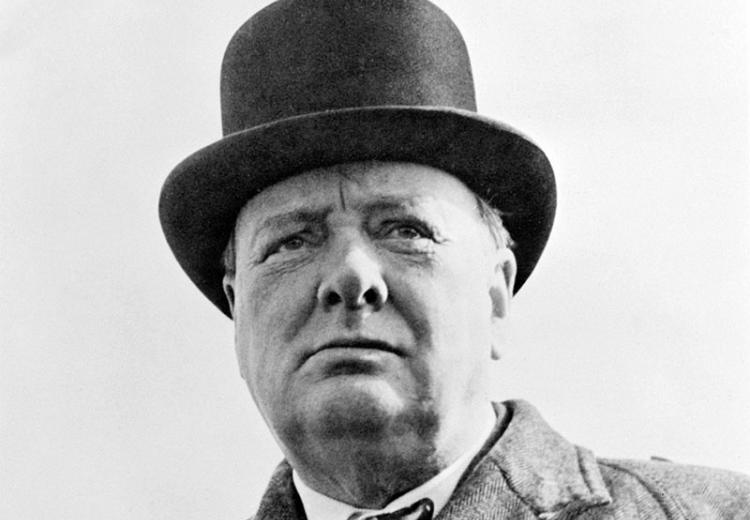American Diplomacy in World War II

Sir Winston Churchill, 1942.
The most terrible war in human history, World War II was fought by the United States to achieve objectives that would not only protect the American nation from aggression but also would permanently better the lot of humankind. Sixty years after its end, the world still lives with the unfolding of its consequences—the rise and decline of the Soviet Union, the end of German aspirations to European dominance, the demise of Western colonialism, a 45-year East-West Cold War and its aftermath, the rebirth of Imperial Japan as a bastion of liberal capitalism, the rise of China as East Asia's dominant power. Whether in the continued tension between Japan and China or in the turbulence of the Middle East, the war's legacies loom large in all our lives.
This four-lesson curriculum unit will examine the nature of what Winston Churchill called the "Grand Alliance" between the United States, Great Britain, and the Soviet Union in opposition to the aggression of Nazi Germany and Imperial Japan.
Guiding Questions
To what extent was the alliance against the Axis powers unified in values and postwar goals?
What were the major allied differences on wartime strategy and goals and how were they resolved?
Why and how did the United States attempt to preserve the Grand Alliance as American diplomats addressed European issues?
Was the American vision for postwar East and Southeast Asia flawed?
Learning Objectives
Analyze the objectives of the United States, Great Britain and the USSR at the beginning of World War II.
Evaluate the Atlantic Charter and the Four Freedoms as alliance goals and weigh them against the experience of the Nazi-Soviet agreements of 1939.
Evaluate the methods used to obtain the surrender of the French North African government and the impact of this strategy on the Alliance.
Explain the Anglo-American decision to require "unconditional surrender" from the Axis powers.
Examine how the ways in which the evolving military progress of the war affected diplomatic decision-making.
Evaluate the short and long term impact of the decisions made by the USSR, the United States, and Britain regarding the future of Germany.
Evaluate the short and long term impact of the decisions made by the USSR, the United States, and Britain regarding the future of Eastern Europe.
Evaluate the role played by the establishment of the United Nations in inter-allied diplomacy.
Evaluate the short and long term impact of the decisions made by the USSR, the United States, and Britain regarding the future of Asia.
